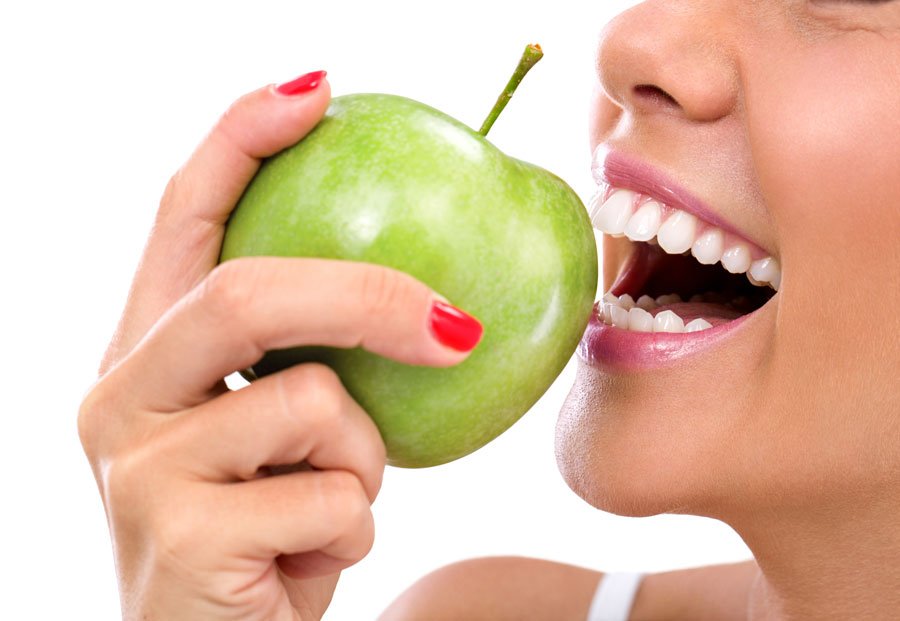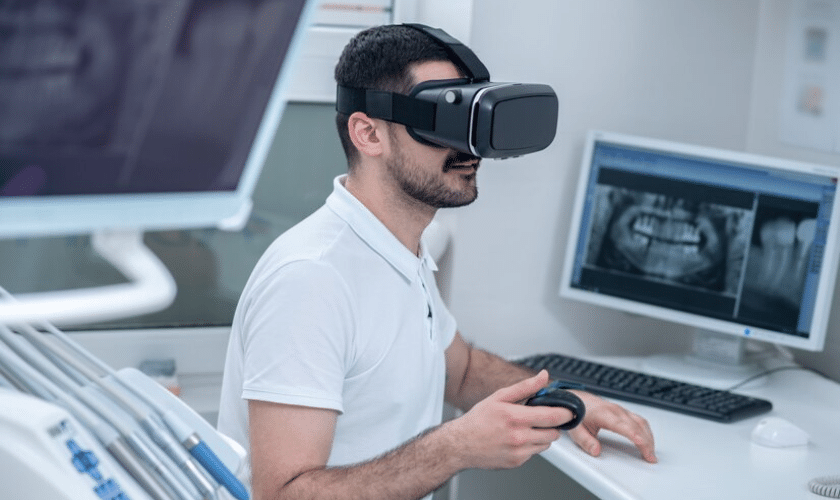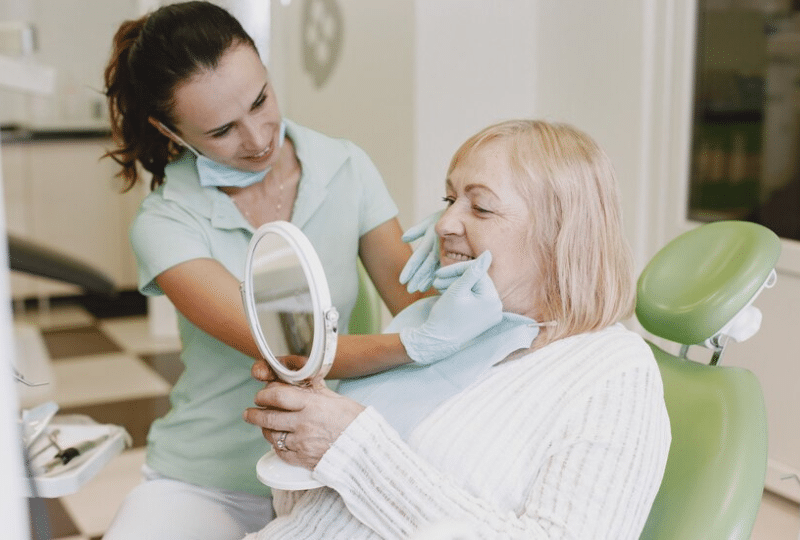New Patients Welcome!

Compared to traditional dental care, holistic dentistry offers a variety of benefits. It’s a form of complementary and alternative medicine.
Many people have been opting for this type of dentistry in recent years. The holistic approach and natural remedies it utilizes make it appealing to many people.
The basic concept of a holistic dentist is that he or she uses holistic techniques within a general dentistry practice. Some may use a combination of these methods. Nonetheless, alternative treatments are part of their oral care approach.
The following article will provide important information about holistic dentistry, including the types of treatment and materials used, its potential benefits, and its possible drawbacks.
HOLISTIC DENTISTRY: WHAT DOES IT MEAN?
Holistic dental medicine is called holistic dentistry. Other names for it include:
- biocompatible dentistry
- alternative dentistry
- natural dentistry
- integrative dentistry
- unconventional dentistry
- biocompatible dentistry
- progressive dentistry
Dentistry of this type is holistic in its approach to oral care. It also considers the relationship between oral health and the rest of the body.
Consequently, holistic dentistry focuses on treating the whole body when treating oral problems. A healthy body is a healthy mind, and a healthy spirit is a healthy spirit.
COMPARED TO TRADITIONAL DENTISTRY, WHAT ARE THE DIFFERENCES?
Some holistic dentists may incorporate traditional methods. The two types of dentistry differ in some crucial ways, however:
A PHILOSOPHY
Each practice is based on a different philosophy. Dental health is the sole focus of traditional dentistry. In this case, the patient is diagnosed and treated for problems related to:
- teeth
- gums
- jaws
- (When the mouth is involved) the head and neck
However, the holistic approach to dentistry treats the whole person rather than just the teeth. Compared to traditional dentistry, it emphasizes the health of the whole body. Including emotional and spiritual health is part of the idea that all aspects of health are interconnected.
METHODS OF TREATMENT
A holistic dentistry treatment differs from conventional dentistry because of its nonconventional philosophies.
Traditional dentistry primarily focuses on treatment methods that are evidence-based and safe, including:
- brushing
- flossing
- fillings
Various methods of holistic dentistry are used. Among the therapies that may be used as part of treatment are:
- nutrition education
- Ayurveda
- electroacupuncture
- aromatherapy
- homeopathy
- herbology
- spiritual healing
- hypnosis
A holistic dentist may recommend nutritional therapy for gingivitis patients to relieve their symptoms. Holistic dentists emphasize the connection between nutrition and oral health, but a traditional dentist may also discuss nutrition with you.
Root canals are also not performed by holistic dentists. Due to the procedures and chemicals involved, they do not believe root canals are safe.
DOCUMENTS
Rather than the chemical substances that traditional dentists use, holistic dentists use “biocompatible” or natural materials. Your body is affected by biocompatibility when you consume certain substances. As a result, the practice focuses on the whole person.
Integrative dentists perform biocompatibility tests on certain materials before using them. Generally speaking, the tests are designed to evaluate if a substance is compatible with a given person’s body and immune system.
Materially, everything is natural. A herbal mouthwash, for example, might be prescribed by a holistic dentist for gingivitis. Medicated mouthwashes such as chlorhexidine, which reduces gingivitis, may be prescribed by a traditional dentist.
Holistic remedies can also include:
- Powdered herbal teeth
- Polopolis
- An Asian plant called neem produces neem toothpaste.
- Fillings made of composite material (instead of mercury)
Research has shown that amalgam and mercury fillings are safe options backed by the American Dental Association (ADA) and in agreement with the Food & Drug Administration (FDA).
These fillings, however, are considered harmful by holistic dentists, so they are not used. In addition to removing mercury fillings if necessary, holistic dentists may also suggest removing amalgam fillings.
Fluoride is also viewed differently by holistic dentists.
Conventional dentists recommend fluoridated water and toothpaste. Fluoride toothpaste, the size of a rice grain, should be used twice daily to brush infants’ teeth and gums when their teeth first emerge, according to the American Dental Association.
The practice, however, is discouraged by holistic dentists. Everyone does not support topical fluoride.
HOW DOES IT BENEFIT YOU?
It is still unknown how holistic dentistry works despite its popularity. It is still unknown whether it is safe, effective, and long-lasting.
If the following are essential to you, holistic dentistry may be for you:
- Natural remedies
- Materials with biocompatibility
- Treatment on a whole-health basis
- Fluoride and mercury avoidance
- Therapuetic alternatives
There is still a lot of research to be done before holistic dentistry can be compared to traditional dentistry.
DO RISKS EXIST?
If you have the following conditions, holistic dentistry might not be safe for you:
- Deterioration of the teeth in the past. Fluoride has been shown to prevent tooth decay, but holistic dentists do not support it so that you can become more susceptible to cavities.
- Infection in the mouth. If you need emergency medical attention, a root canal may be necessary. Holistic dentists may recommend root canals instead of pulling infected teeth.
- Medication prescribed by a doctor. Herbal remedies are sometimes incompatible with prescription drugs.
- Insomnia. People with chronic conditions have not been studied to determine if holistic dentistry is safe.
More research is needed to determine which risks and side effects are specific to holistic dentistry.
WHAT IS THE AGE RANGE FOR THIS PRODUCT?
There is no information on the suitability of holistic dentistry for children yet. There have been no studies on whether it’s effective or safe for kids.
Look for a pediatric dentist specializing in holistic dentistry if you want to bring your child to one. Children are the focus of pediatric dentists. This way, your child will be cared for by someone with the skills, knowledge, and tools needed.
DOES INSURANCE COVER IT?
Your dental insurance might cover holistic dental care if you have it. Your insurance plan and the dentist you choose will determine this.
In general, holistic dentists don’t appear on listings. Their list will simply say “dentists” since they practice holistic dentistry.
You can research and find some if you don’t know any holistic dentists within your network. Mercury- or fluoride-free dentist can also be found by searching for those words.
It’s important to remember that some alternative therapies are not covered by insurance. Before making an appointment, it is essential to confirm what services are covered by a holistic dentist. Before getting written proof, it may be helpful to get it in writing.
IN SUMMARY
A holistic dentist focuses on more than just your teeth and gums when it comes to oral care. It emphasizes the importance of dental health for your entire body. Fluoride and mercury fillings are not used in holistic dentistry.
There isn’t a lot of research on this type of dentistry. The effectiveness and safety of this method are unclear. A reputable and licensed dentist is your best option if you want this dental care.
For further details, visit a dentist in ventura ca





